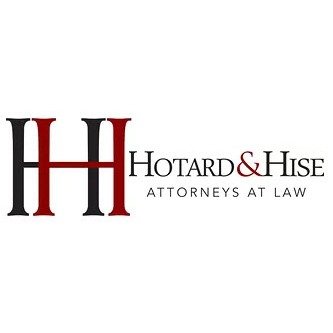Best Workers Compensation Lawyers in Georgia
Share your needs with us, get contacted by law firms.
Free. Takes 2 min.
Or refine your search by selecting a city:
List of the best lawyers in Georgia, United States
About Workers Compensation Law in Georgia, United States
Workers compensation is a system that provides benefits to employees who suffer work-related injuries or illnesses. In Georgia, this law requires most employers with three or more employees to carry workers compensation insurance. The purpose is to ensure that workers receive necessary medical care, income benefits, and support if they are injured on the job, regardless of fault. The Georgia State Board of Workers Compensation oversees the system to help both employees and employers navigate claims efficiently.
Why You May Need a Lawyer
While the workers compensation system in Georgia is designed to be straightforward, many injured workers encounter challenges that may require legal assistance. You might need a lawyer if:
- Your claim is denied or disputed by your employer or their insurance company.
- You have severe injuries that require extensive medical treatment or result in long-term disability.
- There is a disagreement about the type or amount of benefits you are entitled to receive.
- You face retaliation at work for filing a workers compensation claim.
- You need help understanding your rights or the legal process.
- Your employer does not have valid workers compensation insurance as required by law.
Local Laws Overview
Georgia’s workers compensation law, found in the Official Code of Georgia Annotated (OCGA Title 34, Chapter 9), includes several key components:
- Coverage: Most employers with three or more employees must provide workers compensation insurance. This includes full-time, part-time, and seasonal workers.
- Medical Benefits: Injured employees are entitled to receive all necessary and reasonable medical care for their work-related injuries or illnesses. This includes physician visits, hospital stays, physical therapy, medications, and travel expenses to medical appointments.
- Income Benefits: If your injury prevents you from working for more than seven days, you may receive weekly income benefits equal to two-thirds of your average weekly wage, up to a maximum set by law. Benefits may include temporary total disability, temporary partial disability, and permanent partial disability depending on the nature of your injury.
- Reporting Requirements: Injuries must be reported to your employer within 30 days. Claims generally must be filed with the State Board of Workers Compensation within one year from the date of the injury or last authorized medical treatment.
- Choice of Doctor: Employers must post a panel of physicians, and injured workers usually must choose an authorized doctor from this list unless the employer fails to provide such a list.
- No Fault: Workers compensation is a no-fault system, meaning you may be eligible for benefits even if the accident was your fault, as long as the injury occurred in the course of employment.
- Employer Retaliation: It is illegal for employers to fire or otherwise retaliate against employees for filing a workers compensation claim.
Frequently Asked Questions
What should I do if I am injured on the job in Georgia?
Report the injury to your employer as soon as possible, preferably in writing, and seek medical treatment with an authorized physician. Failing to promptly notify your employer could jeopardize your right to benefits.
Who is covered by workers compensation in Georgia?
Nearly all employees of businesses with three or more workers are covered, including full-time, part-time, and seasonal workers.
What types of benefits can I receive?
Eligible employees may receive medical benefits, income benefits for lost wages, and rehabilitation support. Dependents may receive death benefits if an employee dies due to a work-related injury.
Can I choose my own doctor?
Generally, you must select a doctor from your employer’s authorized panel of physicians. If the panel is not properly posted or provided, you may have more flexibility in your doctor choice.
What if my claim is denied?
If your claim is denied, you can request a hearing before an Administrative Law Judge with the Georgia State Board of Workers Compensation. Legal representation can increase your chances of successfully challenging a denial.
How long do I have to file a claim?
You must report your injury to your employer within 30 days and file a claim with the State Board of Workers Compensation within one year of the accident or your last medical treatment for the injury.
Does my employer have to keep my job open if I am unable to work?
There is no requirement under workers compensation law for your employer to hold your job, but you should not be fired in retaliation for filing a claim.
Will I receive my full salary if I cannot work?
No. Income benefits are typically two-thirds of your average weekly wage, subject to maximum limits set by state law.
Can I sue my employer instead of filing for workers compensation?
In most cases, workers compensation is your exclusive remedy, and you cannot sue your employer for a work injury. Exceptions may apply if your employer intentionally caused your injury.
Can I receive benefits if I was at fault for my injury?
Yes. Georgia workers compensation is a no-fault system, so employees may qualify for benefits even if they were partially or completely at fault, except in cases of willful misconduct or intoxication.
Additional Resources
If you need more information or assistance, consider these resources:
- Georgia State Board of Workers Compensation: Main authority overseeing workers compensation claims and providing information for both employers and employees.
- Georgia Department of Labor: Provides guidance on workplace safety, employee rights, and employer responsibilities.
- Local Legal Aid Organizations: Groups such as Georgia Legal Services Program and Atlanta Legal Aid Society offer assistance to those who qualify.
- Occupational Safety and Health Administration (OSHA): Addresses workplace safety concerns and may help if your injury was caused by unsafe conditions.
- Certified Workers Compensation Attorneys: Many attorneys offer free consultations to review your case and explain your rights.
Next Steps
If you have been injured at work or have questions about your rights under Georgia’s workers compensation laws, you can take the following steps:
- Report your injury to your employer as soon as possible.
- Seek medical treatment from an authorized healthcare provider.
- Gather documentation, including accident reports, medical records, and communications with your employer or insurance company.
- Contact the Georgia State Board of Workers Compensation for guidance or required forms.
- Consult with a qualified workers compensation lawyer if your claim is denied, delayed, or if you encounter disputes or retaliation.
- Stay informed about your rights and responsibilities throughout the process to ensure you receive the full benefits to which you are entitled.
Remember, acting promptly and seeking professional legal advice can make a significant difference in the outcome of your workers compensation claim in Georgia.
Lawzana helps you find the best lawyers and law firms in Georgia through a curated and pre-screened list of qualified legal professionals. Our platform offers rankings and detailed profiles of attorneys and law firms, allowing you to compare based on practice areas, including Workers Compensation, experience, and client feedback.
Each profile includes a description of the firm's areas of practice, client reviews, team members and partners, year of establishment, spoken languages, office locations, contact information, social media presence, and any published articles or resources. Most firms on our platform speak English and are experienced in both local and international legal matters.
Get a quote from top-rated law firms in Georgia, United States — quickly, securely, and without unnecessary hassle.
Disclaimer:
The information provided on this page is for general informational purposes only and does not constitute legal advice. While we strive to ensure the accuracy and relevance of the content, legal information may change over time, and interpretations of the law can vary. You should always consult with a qualified legal professional for advice specific to your situation.
We disclaim all liability for actions taken or not taken based on the content of this page. If you believe any information is incorrect or outdated, please contact us, and we will review and update it where appropriate.
Browse workers compensation law firms by city in Georgia
Refine your search by selecting a city.
















